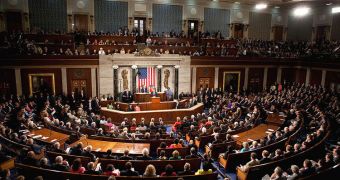The US House of Representatives introduced a short-term spending bill recently that would have the undesirable effect of cutting down the budget of the American space agency by $139 million.
The measure, which was introduced on April 4, is designed to allow for the federal government to operate until mid-April. Authorities have yet to come to an agreement about the budget for the fiscal year 2011, even after numerous talks.
As such, for months, the federal government has been operating on a series of measures called continued resolutions, which basically keep all funding allocations at the same levels as they were during the last fiscal year.
But the last of these measures comes to an end on Friday, April 8, and the House of Representatives proposed the new one so as to prevent a government shutdown. This would have far-reaching implications on the US economy and credibility.
The new bill cuts very deep within budgets across the board. It seeks to save more than $12 billion in discretionary spending from 2010 levels, and NASA did not escape unscathed. The US Defense Department is best off, as it will received funding until the end of this fiscal year.
The Space Shuttle Program alone will lose more than $100 million if the measure is passed through Congress in the coming days. Its appropriation level was $6.14 billion in 2010, and the new bill proposes that it gets only $6.04 billion for 2011, Space reports.
An additional $40 million would be cut from the NASA construction and environmental compliance account. Last year, Congress approved the transfer of $448 million into this account, but the agency would get only around $410 million if HR 1363 passes.
Over the past few months, the House and Senate worked and argued tirelessly towards producing a long-term spending plan, to fuel the budgets of all federal government-controlled agencies by September 30. This is when fiscal year 2011 ends.
According to Representative Hal Rogers (R-Kentucky), lawmakers from both chambers worked “diligently and fervently” towards this goal, but somehow failed to reach the necessary consensus.
“This bill is not the preferable way to go forward, and I would greatly prefer to come to a final agreement with the Senate to put this long-overdue budget work behind us,” said Rogers, who is the chairman of the House Appropriations Committee.
“However, we must maintain critical programs and services for the American people and protect our nation’s financial future,” he added on April 4.

 14 DAY TRIAL //
14 DAY TRIAL //